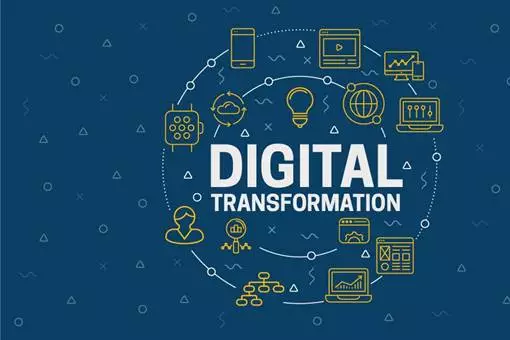Traditional offices could eventually disappear, claims PwC report
- 5th August 2014
- Innovation & Technology

The way we work is going to change dramatically in the coming years, according to a new PwC report.
Technology and globalisation have already had a massive impact on the way we work in the 21st century. But anew report from PwC suggests that these changes are set to continue – and the future of work could look very different to the environment we see today.
The survey involved 10,000 participants in major economies such as Germany, India, China, the US and the UK and asked them how they envisioned their working lives evolving in the coming years. Overall they were upbeat about their prospects – two-thirds said the future of work was “full of possibility” and that they thought they would prove to be successful.
But technology is expected to have a huge effect – 53 per cent said they believed new breakthroughs would transform the way we work in the next five to ten years.
At the same time, four out of ten said that a shortage of resources and climate change would change practices. While 36 per cent said the same of shifts in the global balance of power. Demographic changes were cited by a third of respondents, while urbanisation was also mentioned by a quarter.
In the UK, one of the most common views among respondents was that the traditional office environment would eventually fade away – just 14 per cent of British workers said they wanted to work in such a place. Instead, a fifth suggested that would prefer to work in a virtual environment they could access anywhere, or make the most of collaboration tools. PwC says this could mean that organisations must start preparing themselves for some radical shifts in the landscape.
“In some cases this might be about individual accountability, represented by the deliverables of an individual staff member. But, in the modern office, it will more often be about results of a team that has to work together to achieve those results – for instance, their availability to deal with customers 24/7,” says Prof Maurits van Rooijen,CEO and Rector at LSBF.
“Proper staff empowerment linked to accountability should allow companies to get a higher degree of productivity or efficiency. Unlike the current system, which is primarily about simply counting hours, the new system could focus on rewarding concrete results.”
For some, this may even mean conventional employment ceases to exist – one in four predicted this would actually be the case.
Rather, the report found British workers expected people would have their individual brands and skills to offer those who need them, which might suggest an increasing appetite for the flexibility of freelance working. HR professionals said they anticipated that over a fifth of their workforce would be either temporary staff or contractors by 2022.
“Workers will be more likely to see themselves as a member of a particular skill or professional network, rather than as an employee of a particular company,” says Jon Andrews, UK HR consulting leader for PwC.
“People will be categorised and rewarded for having specialist expertise. Project-related bonuses could become more common as people have a personal stake in the organisation’s or project’s success. We expect many contractors and partners will adopt ‘e-bay’ style ratings of past performance to help land the next contract.”
Other News
How Leadership Shapes Digital Transformation
Being digitally driven is a necessity right now for every business, but just acquiring new technology isn’t enough as implementation…
Top 3 Big Data Trends in 2020
Data and technology have made their way into our lives and have forever changed the way we use the internet.…
Technology failures changing consumer attitudes in banking, study shows
A study from data analytics firm Consumer Intelligence has highlighted the impact of technology failures in banking, with more than…



